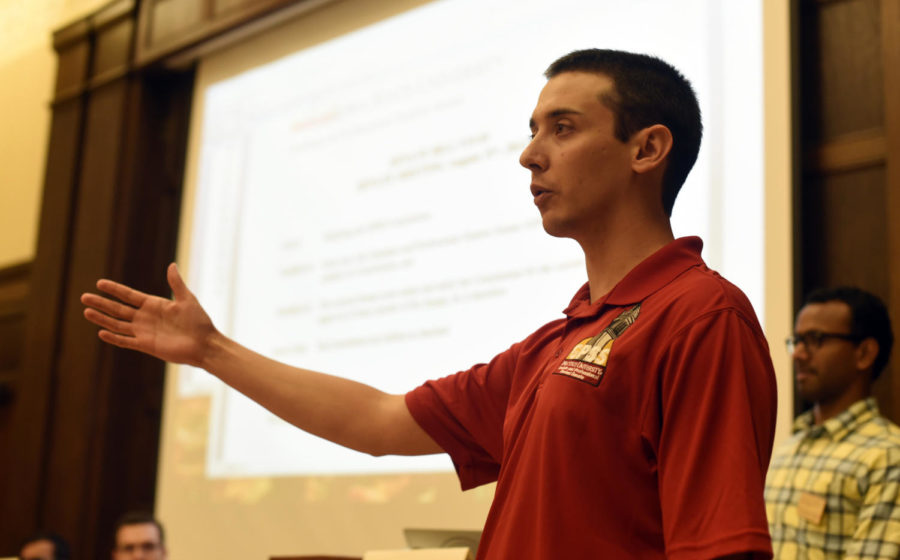Editorial: GPSS needs proper Bill of Rights
Vice President Cory Kleinheksel speaks Monday during the first meeting of the Graduate and Professional Student Senate in the South Ball Room of the Memorial Union in Ames.
February 26, 2016
When a group sets out to form a new organization or governing body, a few logical first steps come to mind. Choosing who is spearheading the charge, what the group’s mission is, what its duties are and what its rights as members of the group will be are some of the usual suspects. The idea that a group could be formed successfully after skipping one or two of these steps seems illogical, but one ISU group managed to do so.
The Graduate and Professional Student Senate organized and led a large group of ISU community members without a formal Bill of Rights. Instead the group has what the university relations legislative affairs chairman for GPSS calls “a section of things that if you do, then you are in trouble” that has not been changed, added to or altered since 1967.
This is clearly an issue. Operating with a Bill of Rights is an important part of any governing organization. People need to know what they can and can’t do as an individual in an organization.
Graduate students especially need some kind of document laying out their rights because they have numerous roles within the university. Graduate students are often classified as both student and faculty, so they cannot rely on the rules and rights of one group over another.
While those working on the draft of the bill are not worried that it won’t be passed by the Graduate Council, it needs to be passed quickly. How it has been a nonissue up until now is baffling, and the council should push it through sooner than later while still ensuring the bill is clear and helpful to graduate students.
However, the bill should perhaps most importantly include the issues that graduate students have expressed concerns about, including medical leave and qualifying to their program’s examinations. It is also important to clarify the rules for international graduate students and their rights as workers in the country on a visa. These types of details were left out of the Graduate Student Handbook for fear of being overly specific when it comes to each item.
Is it really possible to have something too specific in a Bill of Rights as it pertains to what people are entitled to as a member of said group? Backing away from important issues rather than figuring out a way to make the rights clear without giving people the feeling of zero wiggle room is part of the process of drafting a working Bill of Rights.

















